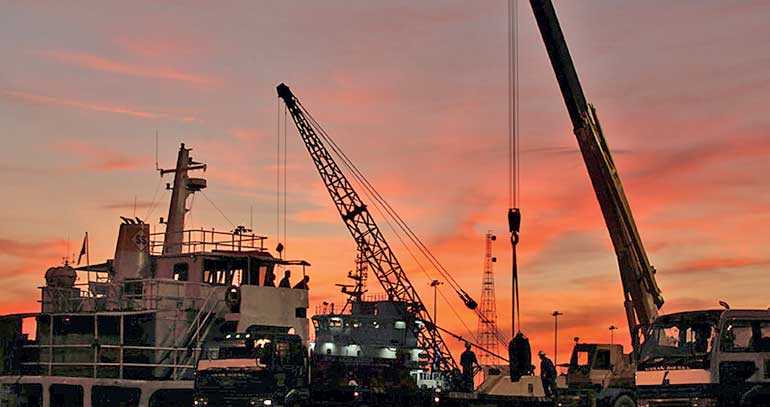Monday Feb 23, 2026
Monday Feb 23, 2026
Tuesday, 30 July 2019 00:00 - - {{hitsCtrl.values.hits}}

TOKYO (Reuters): Oil prices fell on Monday as investors fretted over the outlook for global economic growth, while weekend talks between Iran and major powers ended on a generally positive note, suggesting an easing of tensions in the Middle East.
Brent crude futures were down by 23 cents, or 0.4%, at $63.23 a barrel by 0427 GMT. Prices rose 1.6% last week.
US West Texas Intermediate crude was down by 9 cents, or 0.2%, at $56.11 a barrel. WTI gained 1% last week. Economic growth in the United States slowed less than expected in the second quarter with a boom in consumer spending, strengthening the outlook for oil consumption.
But growth outside the US is slowing faster, due partly to the impact of the US-China trade war.
“For global growth, the outlook there is looking shakier ... it’s not disastrous but it’s not shooting the lights out,” said Phin Ziebell, Senior Economist at National Australia Bank.
“Where does oil demand fit in a world where it looks like this big boom is now starting to tail off,” he said, pointing also to recent sluggish car sales around the world.
Senior US and Chinese negotiators are meeting this week for the first time since trade talks broke down in May, as they struggle to resolve deep differences. Expectations for progress during the two-day Shanghai meeting are low.
Traders and investors are also focussed on meetings of major central banks — including the US Federal Reserve, which is expected to lower interest rates. An emergency meeting with parties to Iran’s 2015 nuclear deal was constructive but there are unresolved issues and Tehran will continue to reduce its nuclear commitments if Europeans fail to salvage the pact, Iranian official Abbas Araqchi said on Sunday. The meeting did not include the United States, which pulled out of the agreement in May 2018 and slapped sanctions back on Iranian oil exports.
Still, tensions remain high around the Strait of Hormuz, the world’s most important oil passageway, as Iran refused to release a British-flagged tanker it seized but granted India consular access to 18 Indian crew members.
Denmark welcomed the British government’s proposal for a European-led naval mission to ensure safe shipping through the strait.
The United States is also working on a multinational maritime security initiative in the Gulf.